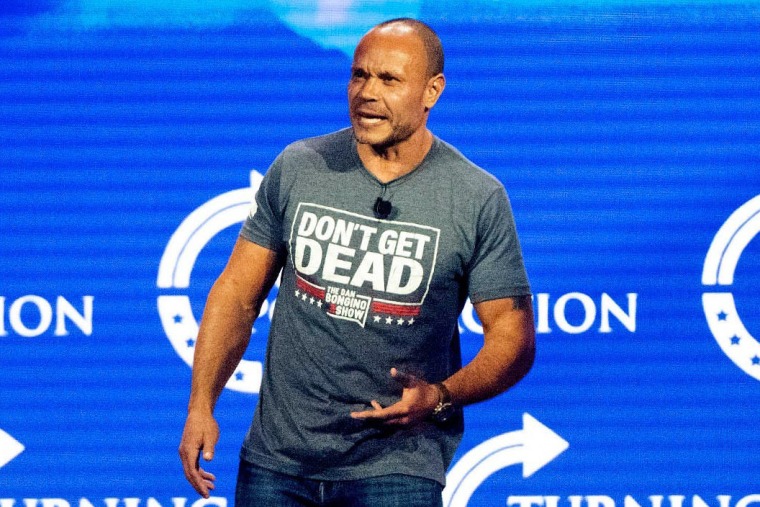The FBI has issued a call for agents to voluntarily serve as bodyguards for Deputy Director Dan Bongino, a break from past practice in which the bureau’s No. 2 officials did not have security details, two current and two former FBI officials familiar with the matter told NBC News.
Bongino, a former Secret Service agent and New York police officer who became a wealthy pro-Trump podcaster, harshly criticized the bureau for years before President Donald Trump chose him to be deputy director.
Bongino, the first deputy director in FBI history who is not a career agent, has pledged to act in a nonpartisan manner.
Last week, a message sent to FBI agents — known as a canvass — asked for volunteers to leave their jobs temporarily to serve on a protective security detail for Bongino. The canvass sought agents willing to relocate for 30 days of temporary duty to protect Bongino 24 hours a day, according to two former FBI officials familiar with security details. Full-time protection could require as many as 20 agents, they said.
The request for 30-day “temporary duty assignments,” or TDYs, means the detail will consist of a rotating group of agents who volunteer to leave their normal duties. Creating the security detail appears to run counter to one of FBI Director Kash Patel’s top priorities: transferring FBI agents from headquarters to the field, where, he argues, they can better fight crime.
The FBI declined to comment.

A single agent was assigned part-time to accompany the previous deputy director, Paul Abbate, to certain events, current and former officials said. Abbate also carried his own service weapon, they added. And he had a full detail only when he traveled overseas.
Two former FBI officials familiar with the matter said Bongino’s current bodyguards have followed him inside secure FBI facilities, including headquarters in Washington. They said directors typically walk around headquarters without their security details.
The former officials said that Bongino could also go through the process to be qualified by the FBI to carry a handgun but that he has chosen to use a full detail, instead.
Former senior FBI official Frank Figliuzzi, an NBC News contributor, criticized Bongino’s decision to not simply carry a weapon, as past deputy directors have done.
“Of course he could carry — this is ridiculous,” Figliuzzi said. “The question is, what is the actual risk and threat here, or does he just want a detail? This is taxpayer money we’re talking about.”
The FBI director, who typically has not been an agent, has usually been protected by a full security detail, as has the attorney general. The exception was Louis Freeh, the FBI’s director from 1993 to 2001, a former agent who carried a gun.
Finding enough FBI agents to staff protective details often puts a strain on the FBI, a former official said. “The director and AG detail were always struggling to bring in personnel to meet their manning needs, and would routinely bring in TDYers from the field,” the former official said.
Often, those agents were members of SWAT teams, and some came from the elite Hostage Rescue Team, which is dispatched to the FBI’s most dangerous and highest-priority operations.
The deputy FBI director used to be in charge of all FBI operations, but under a reorganization enacted by Patel, Bongino supervises other top officials who lead three regional divisions.
Bongino reiterated his commitment to the position Sunday on X and said there are some questions about his work at the FBI he cannot answer publicly.
“I realized when I signed up that I’d never be able to fully explain some decisions we make due to legal and ethical constraints,” he wrote. “But that’s a pill I agreed to swallow when I swore in. ... I realize asking you to ‘trust me’ is a waste of time. Watch what happens, continue to demand results, be cautious of narrative ‘traps,’ let time put the puzzle pieces together, and what we’re doing will make sense.”

